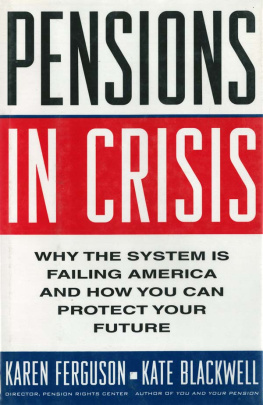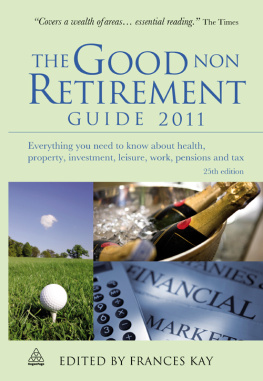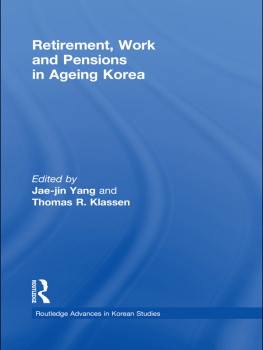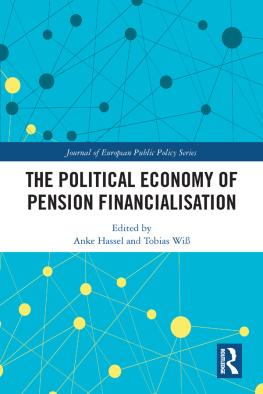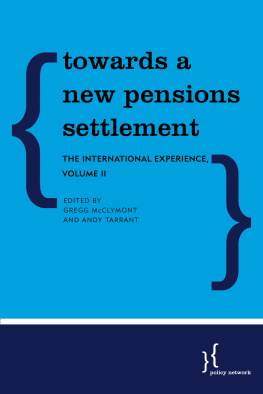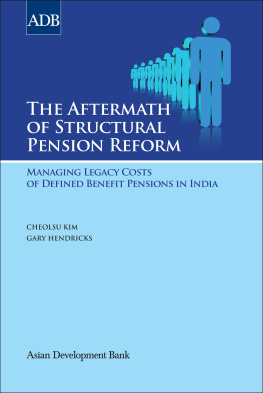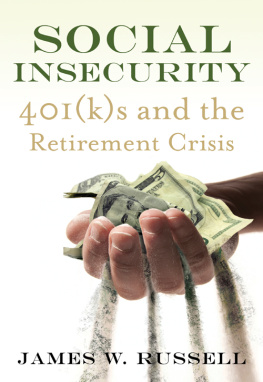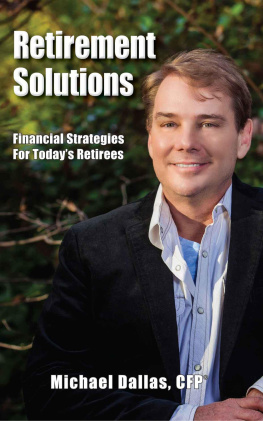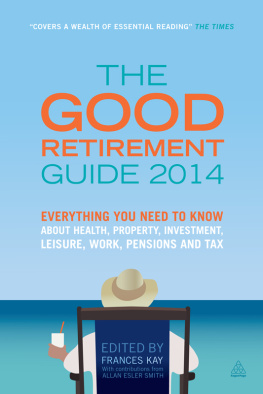All Rights Reserved. No part of this book may be reproduced in any manner without the express written consent of the publisher, except in the case of brief excerpts in critical reviews or articles. All inquiries should be addressed to Arcade Publishing, 307 West 36th Street, 11th Floor, New York, NY 10018.
Arcade Publishing books may be purchased in bulk at special discounts for sales promotion, corporate gifts, fund-raising, or educational purposes. Special editions can also be created to specifications. For details, contact the Special Sales Department, Arcade Publishing, 307 West 36th Street, 11th Floor, New York, NY 10018 or arcade@skyhorsepublishing.com .
Arcade Publishing is a registered trademark of Skyhorse Publishing, Inc., a Delaware corporation.
This book provides an overview of rules relating to private retirement plans. It is not intended to be a substitute for legal or other professional advice. If legal or other assistance is required, the reader should seek the services of a competent lawyer or other professional. Professional advice cannot be given without full knowledge of an individuals particular situation.
Visit our website at www.arcadepub.com .
Library of Congress Cataloging-in-Publication Data is available on file.
FOREWORD
Pensions in Crisis tackles the critical problem of how Americans prepare for retirement. Written for the average citizen and policymaker alike, the book will guide and enrich the coming national debate on pension policy.
Many of the issues discussed in the book were issues that occupied John Heinz during his 12-year career in the United States Senate. He wanted to ensure that women would be treated more fairly by the private pension system, to eliminate pension inequities for all people, and to develop programs that would educate the public about the need for sources of income to supplement social security. To those ends, he worked on a bipartisan basis to enact the Retirement Equity Act of 1984 and Tax Reform Act of 1986 laws that provided pensions to millions of working men and women, widows, divorced homemakers, and others previously denied pension benefits.
As chairman of the Senate Special Committee on Aging, John Heinz became convinced that instead of this nations fragmented approach to pensions, we needed to have a single, coherent policy on retirement income, and he made every effort to stimulate debate on the various alternatives. His death in a plane crash in 1991 cut short his campaign to move Congress and the country toward adopting such a policy.
In July 1992, the Teresa and H. John Heinz III Foundation awarded a grant to the Pension Rights Center to undertake a comprehensive study of the private retirement system. It had become clear to me that unless the American public was informed of the many significant problems confronting our private pension system we risked seeing the congressional debate on retirement income being silenced.
This book is the result. It lays out the problems and the choices we face. A crisis is before us. It is time to confront and overcome it.
Teresa Heinz
PREFACE
I hope when this letter is read that you'llrealize I do need help. I don't have much time left. I'm 75 years old. My income just will not stretch far enough to pay all the bills.
Ettie Jo Gilmer
Gantt, Alabama
Ettie Jo Gilmers cry for help is one of thousands the Pension Rights Center receives every year from people who didnt get the pension theyd been counting on. They learned too late that pension rules can deny people benefits or give them next to nothing. They feel cheated. Many, like Ettie Jo Gilmer, face poverty for the first time in their lives. They are desperate and have nowhere to turn.
Americans as a whole are not prepared for retirement. Social security is not enough to live on, a fact few people realize. It is practically impossible for anyone other than those in the highest income brackets to save enough to make a difference. Everyone needs another source of income, which makes pensions absolutely critical. But although they pay off handsomely to some, pensions provide little or nothing to everyone else. Two-thirds of the nearly 90 million Americans in the private workforce today arent even in a pension plan.
The numbers tell the story: the system is in crisis. And its getting worse, as more and more employers drop traditional plans and tell their employees to save for themselves through 401(k)s and other tax-sheltered savings arrangements. The savings myth is todays new twist on retirement. What employers dont say and what the numbers do is that those who will profit from these new savings plans are people wealthy enough to save without tax incentives.
Even though it threatens the quality of life for millions of Americans, the crisis is still a quiet one. Social security and government pensions have made the headlines; private pensions, by and large, have not. The media pick up on occasional scandals but important pension issues go totally unreported, and what is reported tends to distort, mislead, or falsely reassure. It is time to set the record straight.
Private pensions affect everyone. Everyone must pay for the multibillion-dollar tax subsidy granted to employers that offer plans. Everyone receives less from social security on the assumption that pensions will make up the difference. And everyone feels the economic impact of the more than $3 trillion in private pension funds, rightly called the largest lump of money in the world. It helps determine the jobs we get, the goods we buy, even the fate of our communities.
To protect their pensions, people need to know how the system works; what rules they should be aware (and wary) of, whats happening to the money in pension funds, and how to make sure its safe. Ettie Jo Gilmer didnt have that kind of information. She didnt even know she needed it until she found that she didnt have enough to live on. Millions of people are making the same discovery. It can happen to anyone.
ACKNOWLEDGMENTS
Our gratitude goes first to all the people who have contacted the Pension Rights Center over the years, whose experiences inspired the writing of this book and provided much of its content. In particular, we are grateful to those who took the time to tell us their stories in detail and permitted us to retell them here. We also especially thank Teresa Heinz, president of the Teresa and H. John Heinz III Foundation, and Jeffrey Lewis, executive director of the foundation, for their generous support of the research and writing of this book.
The book could not have been written without the staff of the Pension Rights Center, whose research assistance, logistical help, and never-faltering moral support we appreciate more than we can say. We owe an enormous debt to attorney Cindy Hounsell, who not only helped us with the numbers but also kept us going through successive stages of the writing with her great good humor and commonsense about it all Shaun OBrien we thank for his steady hand on the notes and his willingness to spend endless hours helping us track down answers to our endless questions. We thank Barbara Johnson for cheerfully typing and proofing numerous drafts of the manuscript without ever making a mistake, and Linda Delavorias and Angela Rakis for their helpful research assistance. For substantive suggestions and review of chapters, we thank attorneys Marilyn Park, Pat Humphlett, Trip Reid, and Ann Marie Marciarille. And we thank Ellen Matthews, the centers administrator, for arranging the cartoon permissions and holding the office together through all the chaos.

